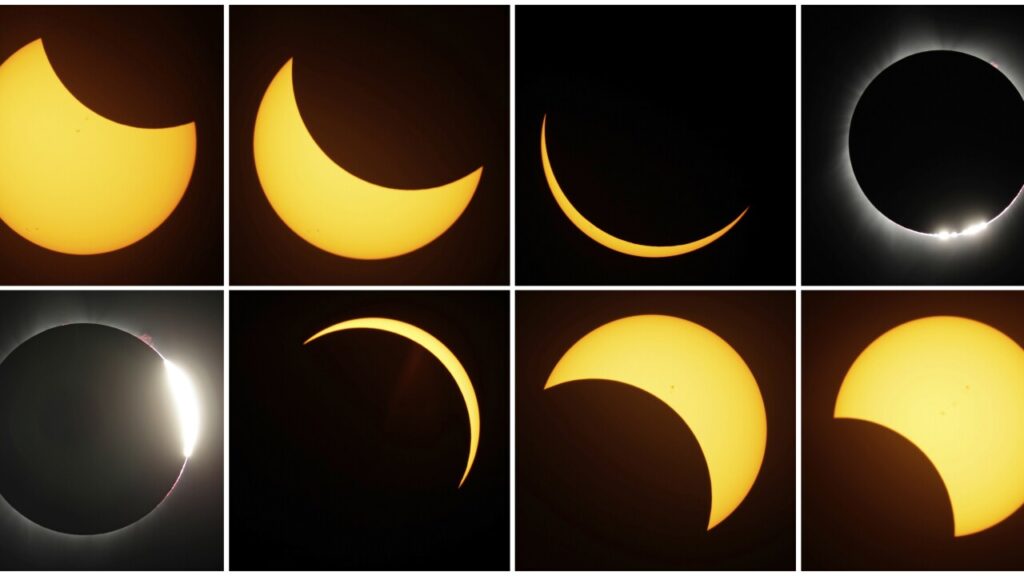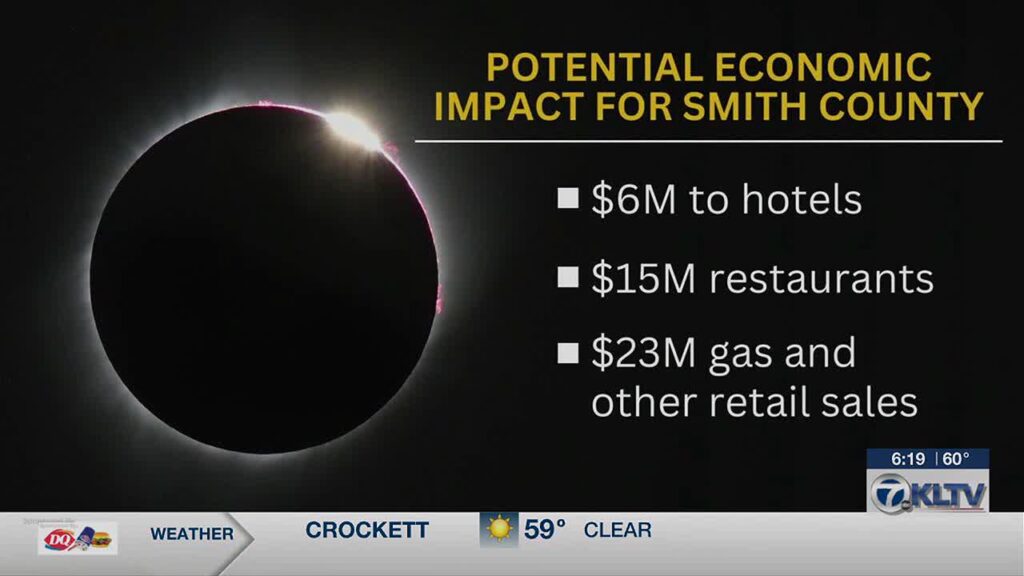The October 2024 Solar Eclipse is set to be a remarkable celestial event that will not only capture the attention of astronomy enthusiasts but also have significant implications for local and national economies. As millions prepare to witness this phenomenon, it is essential to understand the potential economic trends and opportunities that may arise from the increased tourism and local spending. This blog will delve into the multifaceted impacts of the eclipse, exploring various economic dimensions.
Overview of the October 2024 Solar Eclipse
The October 2024 Solar Eclipse will occur on the 2nd of the month, primarily visible across parts of South America, particularly in Chile and Argentina. Unlike typical solar eclipses, this event will be an annular eclipse, which means that the Moon will cover the Sun’s center, leaving a bright ring or “ring of fire.” Historical data indicates that solar eclipses have historically attracted significant public interest, leading to increased tourism and economic activity in the regions within the path of totality. The anticipation surrounding this celestial event suggests a similar economic boost for local businesses and communities.

Economic Opportunities Created by the Eclipse
The October 2024 Solar Eclipse presents numerous economic opportunities for regions along its path. It is estimated that the eclipse could generate around $6 billion in economic activity, significantly benefiting the hospitality, retail, and tourism sectors. As hotels, restaurants, and local attractions prepare for a surge in visitors, many are developing special packages and events designed to capitalize on the increased foot traffic. This influx of tourism offers a chance for regions to showcase their local culture and hospitality while driving revenue that can benefit the economy long after the eclipse has passed.

Impact on Tourism Revenue
One of the most significant impacts of the October 2024 Solar Eclipse will be the surge in tourism revenue for areas in the path of totality. Historical patterns from previous eclipses indicate that popular viewing locations can expect fully booked accommodations and skyrocketing prices. For instance, cities in Chile and Argentina are preparing for a wave of both domestic and international travelers eager to witness the eclipse. Local businesses are gearing up for this opportunity, with many offering unique experiences such as guided tours, viewing parties, and themed events that can enhance the overall experience for visitors.

Retail and Local Businesses Boost
The upcoming eclipse is expected to have a substantial boost on retail and local businesses, especially those located within the vicinity of popular viewing areas. With thousands of visitors flocking to these regions, shops, restaurants, and service providers can anticipate increased demand for their offerings. From selling eclipse-themed merchandise to offering special menu items for tourists, local businesses have a unique opportunity to leverage the influx of visitors. Such spending is not just limited to accommodations and dining; tourists are likely to shop for souvenirs and local products, further driving economic activity within these communities.
Transportation and Infrastructure Enhancements
As the October 2024 Solar Eclipse approaches, transportation and infrastructure improvements will be critical in accommodating the influx of visitors. Airports and local transportation services will likely see increased bookings and usage, prompting upgrades and enhancements to handle the volume. Cities may also invest in road maintenance and improvements to ensure smooth traffic flow during the event. These investments not only prepare for the eclipse but can leave a lasting impact on the region’s infrastructure, benefiting the local community long after the event is over.
Impacts on Public Services and Local Governments
The anticipated economic activity surrounding the October 2024 Solar Eclipse will have significant implications for local governments and public services. The increase in tourism can lead to enhanced revenue through sales taxes, lodging taxes, and other related fees. These additional funds can then be reinvested into community services, infrastructure projects, and local initiatives. Local governments may also implement plans to manage the potential surge in visitors, ensuring that essential services like emergency response, waste management, and traffic control are prepared to meet the increased demand.
Long-Term Economic Trends Post-Eclipse
While the immediate benefits of the October 2024 Solar Eclipse are evident, the long-term economic trends also warrant consideration. Communities that effectively capitalize on this event may see sustained interest and tourism even after the eclipse has passed. By promoting their region as a desirable travel destination, these areas can attract more visitors for future events, festivals, and activities. Establishing a reputation for being a prime viewing location can open doors to new economic opportunities that extend far beyond the eclipse itself.
Investment Opportunities Linked to the Eclipse
The October 2024 Solar Eclipse will also create various investment opportunities across different sectors. Businesses related to travel and tourism, such as airlines, hotels, and local attractions, will likely see increased interest from investors looking to capitalize on the expected surge in demand. Additionally, companies specializing in event planning, transportation logistics, and hospitality services may find new opportunities to expand their offerings in response to this celestial event. This influx of investment can further stimulate economic growth and foster innovation within the regions impacted by the eclipse.
Challenges and Risks for Local Economies
Despite the many economic opportunities presented by the October 2024 Solar Eclipse, there are also challenges and risks that local economies must consider. Relying heavily on tourism for economic growth can create vulnerabilities, especially if external factors, such as weather conditions or global events, deter travelers from visiting. Communities must strike a balance between promoting the eclipse and ensuring sustainable economic practices that do not overly depend on single events. Planning for potential fluctuations in tourism and developing diverse economic strategies will be essential for long-term resilience.
Comparative Analysis with Previous Solar Eclipses
To understand the potential impacts of the October 2024 Solar Eclipse, it is useful to examine the economic outcomes of previous solar eclipses. Historical data indicates that regions in the path of totality often experience significant boosts in tourism and local spending. For instance, the 2017 total solar eclipse in the United States generated an estimated $700 million in economic impact across various states. Learning from these past events can help communities prepare effectively and develop strategies to maximize benefits from the upcoming eclipse.
Community Engagement and Involvement
The success of the October 2024 Solar Eclipse in driving economic activity will rely heavily on community engagement and involvement. Local organizations and governments can foster a spirit of collaboration by organizing events, providing information, and promoting the eclipse to attract visitors. Community-led initiatives, such as viewing parties and educational programs, can enhance the overall experience for tourists while strengthening local ties. Encouraging residents to participate in the planning and execution of events can create a welcoming atmosphere that showcases the region’s hospitality and culture.
Conclusion: The Broader Economic Implications
In summary, the October 2024 Solar Eclipse offers significant potential for economic trends and opportunities that can benefit various sectors, particularly tourism and local businesses. By understanding the implications of this celestial event and effectively preparing for its arrival, communities can harness its power to drive economic growth and sustainability. Through strategic investments, community engagement, and careful planning, the eclipse can become a catalyst for long-term economic development that extends well beyond the date of the event. Embracing this opportunity can help regions thrive while creating memorable experiences for visitors and residents alike.
The October 2024 Solar Eclipse is not just a moment to marvel at the beauty of nature; it is also an occasion for economic revitalization that can transform communities and establish new pathways for growth.





